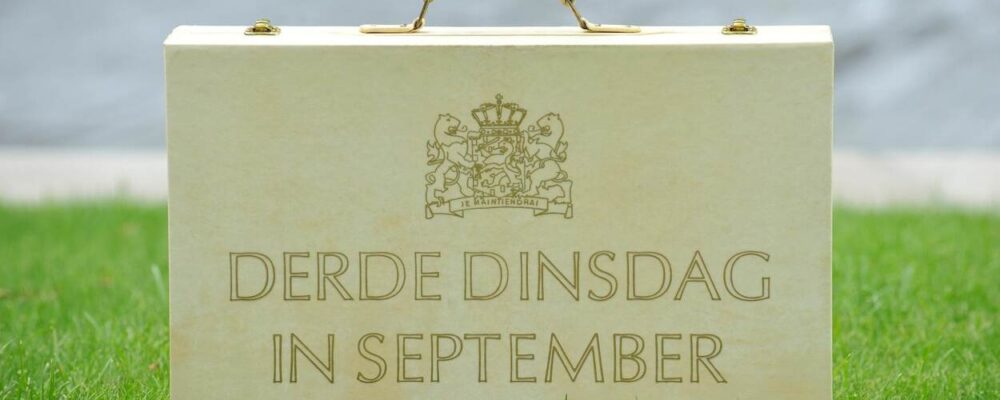The 3rd Tuesday in September was Budget Day (Sept. 20), when the Budget Memorandum and the National Budget were presented to the House of Representatives.
Employers will have to implement a number of things as of 2023 to get their payroll in order for all employees (including knowledge migrants). Below is a small sample of the changes as of January 1, 2023:
- Increase minimum wage
The minimum wage will be raised by 10.15% all at once, due to exceptionally high inflation and its impact on the disposable income of Dutch citizens. This provides perspective for people with lower and middle incomes, making them more resilient against (possible) financial setbacks. The minimum wage increases to € 12.40 gross per hour for a 36-hour work week. This obviously does not apply to highly skilled migrants as they are required to meet IND salary standards.
- Limitation of 30% ruling as of 2024
The government advocates a so-called Balkenende norm (based on the former prime minister of the Netherlands salary), or the maximum salary for top officials set forth in the Top Income Standardization Act (WNT). This maximum salary for the WNT will be € 223,000 in 2023. The proposal is to apply the 30% rule only over that amount, or a non-taxable allowance of € 66,900.
- Increase in non-taxable home office allowance
Big chance than the non-taxable home office allowance will increase by 13 cents to € 2,13. An additional increase has been proposed in the Tax Plan 2023. This non-taxable home office allowance will follow after the standard correction factor, which will be announced at the end of December. Then, the regulation for adjustment will be published in the State Courant
- Increase non-taxable mileage allowance
For the first time since 2006, the non-taxable travel allowance will increase from € 0.19 to € 0.21 per kilometre. One year later it will increase further to € 0.22 per kilometre.
- Increase in employment tax credit
As of 2023, the government wants the employment tax credit to increase annually. This increase is beneficial for employees and entrepreneurs with a labour income up to € 115,000,-. The income tax is thereby reduced, making it worthwhile to work more. Especially for employees with an annual income between € 11,000,- and € 37,000,-.
- Change social premiums
The premiums from the budget are not all final yet, but the calculation premium for the resume employment deposit (Werkhervattingskas (Whk) rises to 1.53% and the Awf premium (General Unemployment Fund) falls to an average of 3.89%. In fact, the low WW premium is estimated at 2.64% and the high WW premium at 7.64%.
The premium rate for the AOW remains at the same level: 17.9%. The AOW premium is combined with the wage and income tax. The ANW (Algemene Nabestaandenwet) will also remain the same in 2023 at 0.1%.
- Decrease employer levy ZVW
The Healthcare Insurance Act for employers will be lowered to 6.68%. This is currently on 6.75%. The maximum contribution wage will increase to € 66,952,-, which was € 59,706,- in 2022.
- Reduction in discount on additional taxable benefit for private use of electric cars
The discount on the additional payment on private use for lease of fully electric cars will be gradually phased out. The addition remains 16%, but the catalogued value on which the addition is calculated will be further reduced to € 30,000,-. Above that amount, the normal additional tax rate of 22% will apply. In 2026, the threshold discount will no longer apply, as the subsidy scheme will be abolished.
- Increase in free margin under the work-related costs scheme
The free allowance under the work-related costs scheme (WKR) will probably increase to 1.92% over the first € 400,000,- of the fiscal wage amount. The result is that more allowances and gifts can be given to employees without having to pay income tax on them.
- Increase STAP budget
STAP stands for Stimulering Arbeidsmarkt Positie (impuls for the labour market position) and is a subsidy intended for training, courses or education. Workers and job seekers can apply for a STAP budget of up to € 1000,- per year for training and development. There are two main substantive adjustments related to the STAP budget. On the one hand the increased subsidy ceiling which was created by budgetary corrections. On the other hand, the budget reservation for manual applications, so that access for everyone is guaranteed. Think here of providing support at the UWV office and grant applicants once digital access is not possible.
Want to read all the details of the Governmental Bill, Tax Plan, budgets and related documents? Go to the website of Rijksoverheid (in Dutch):
https://www.rijksoverheid.nl/onderwerpen/prinsjesdag/miljoenennota-en-andere-officiele-stukken

